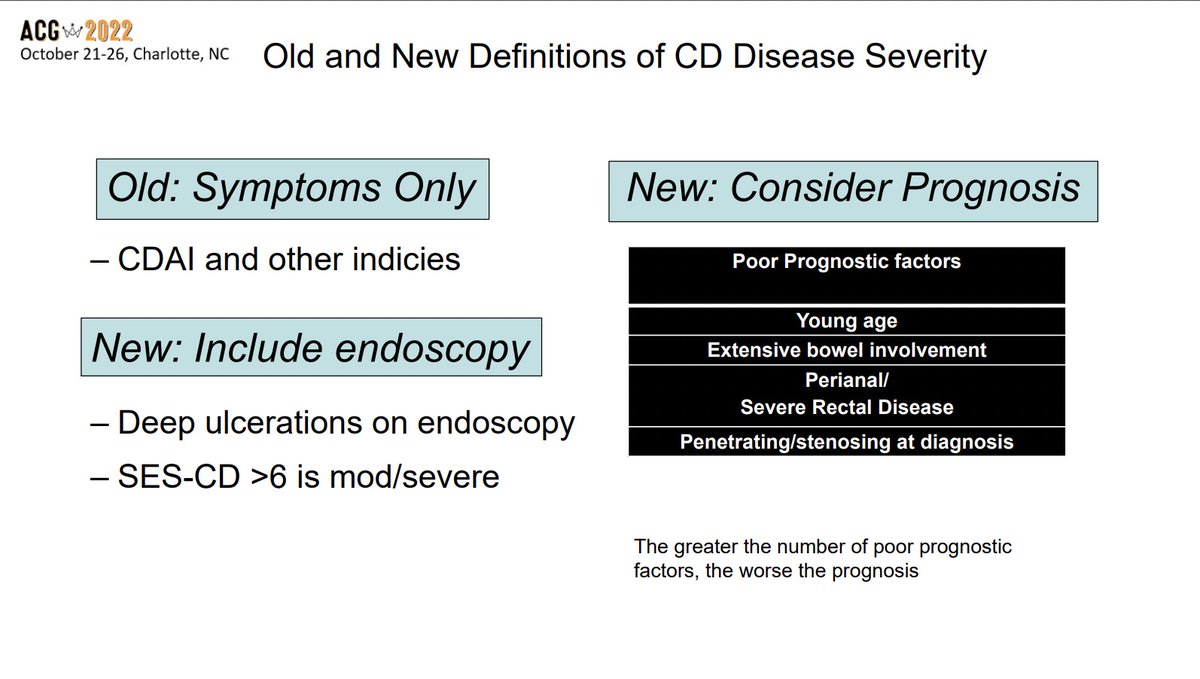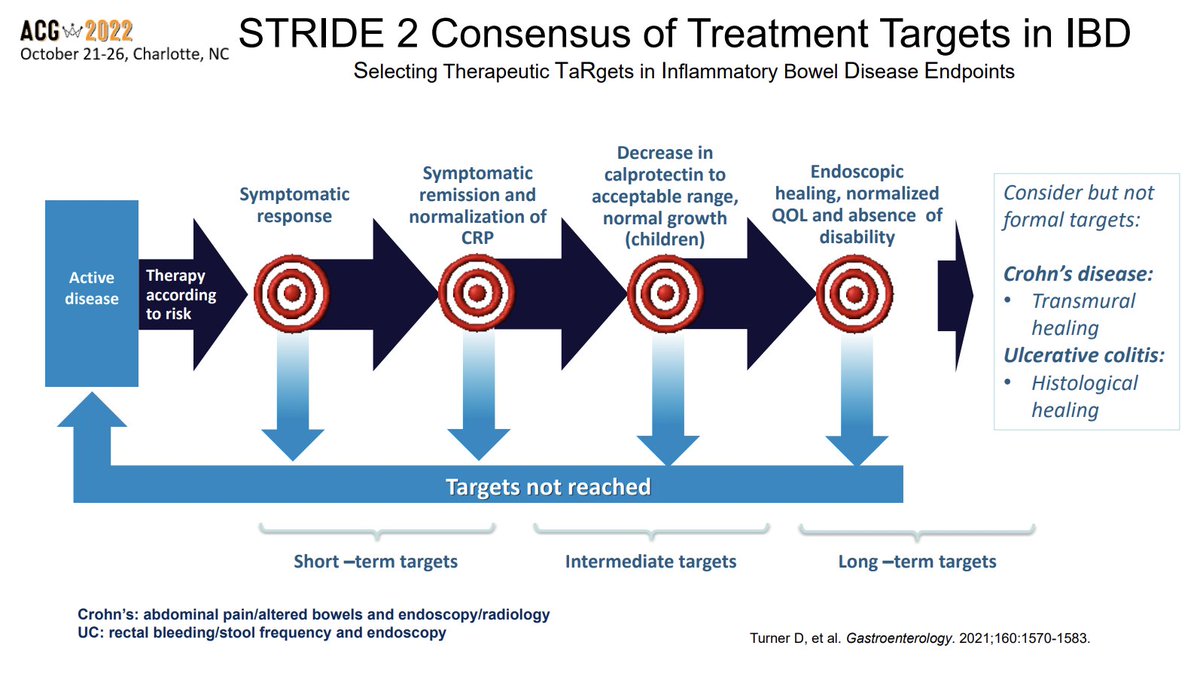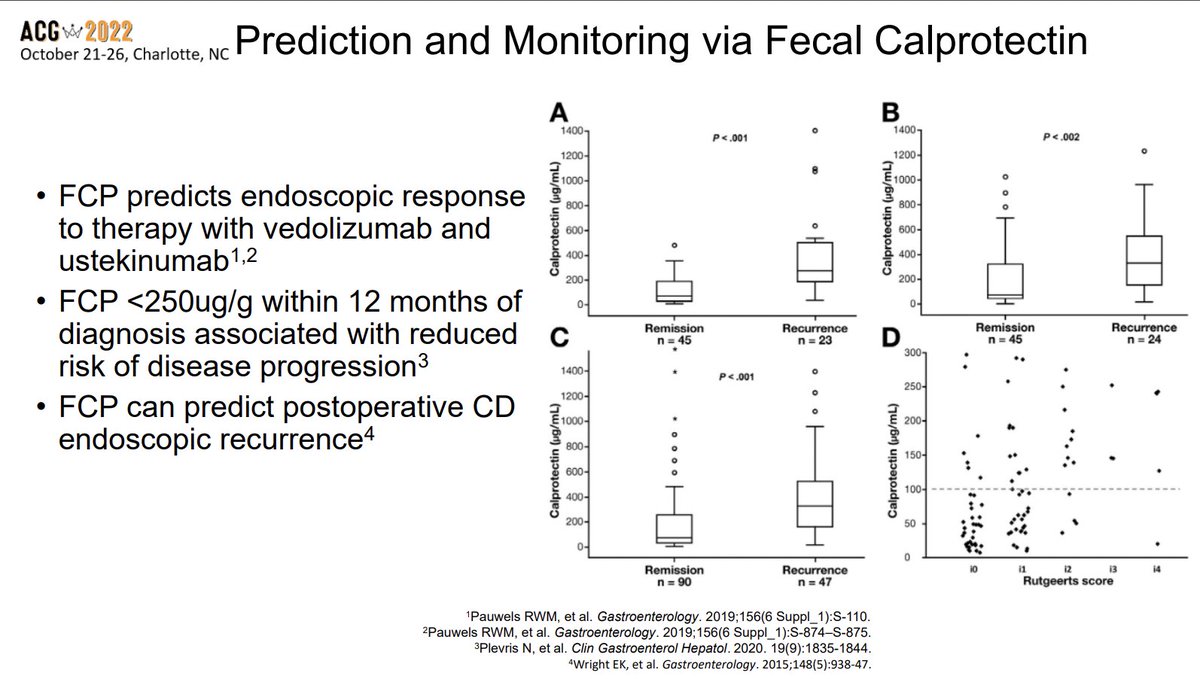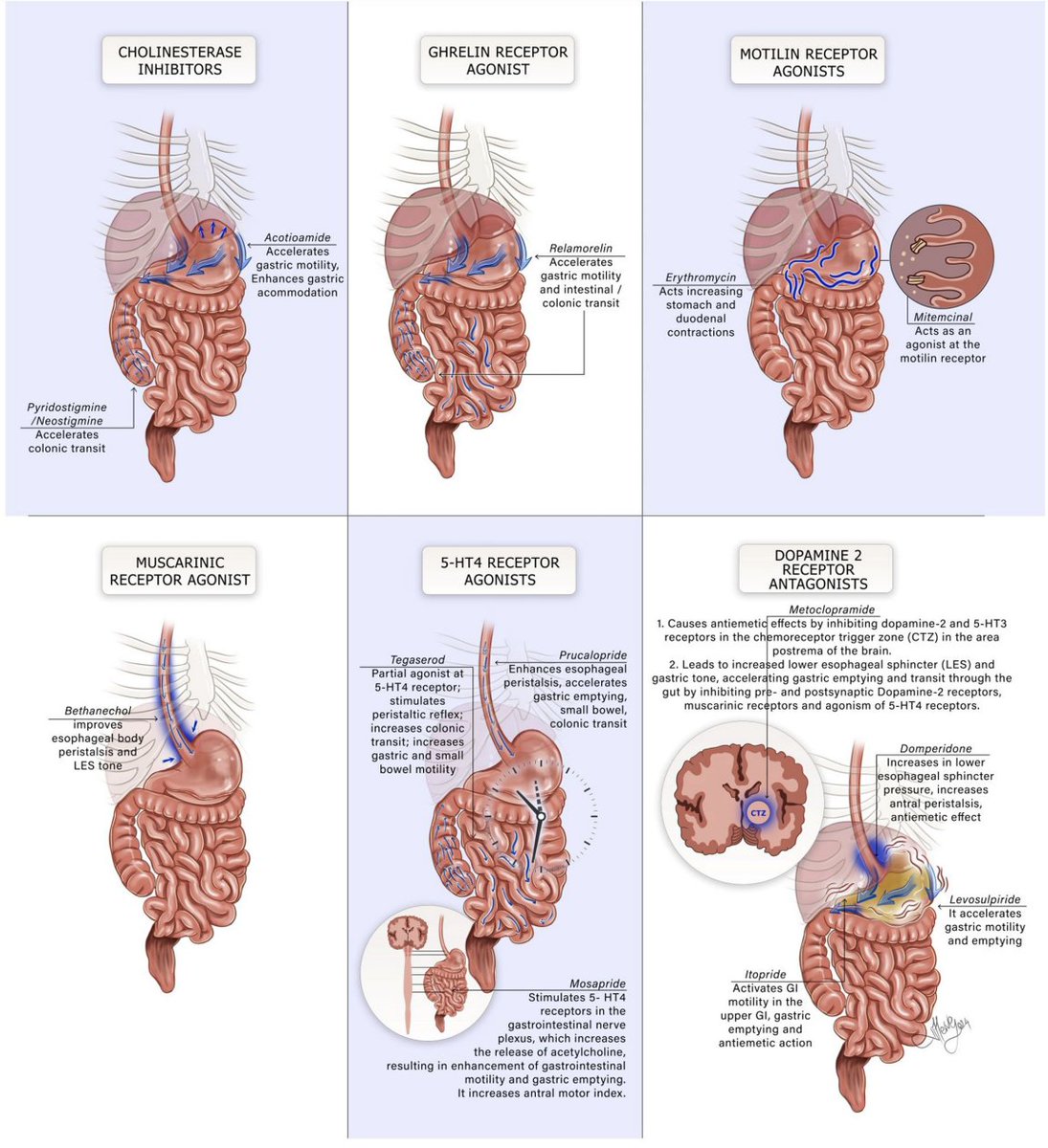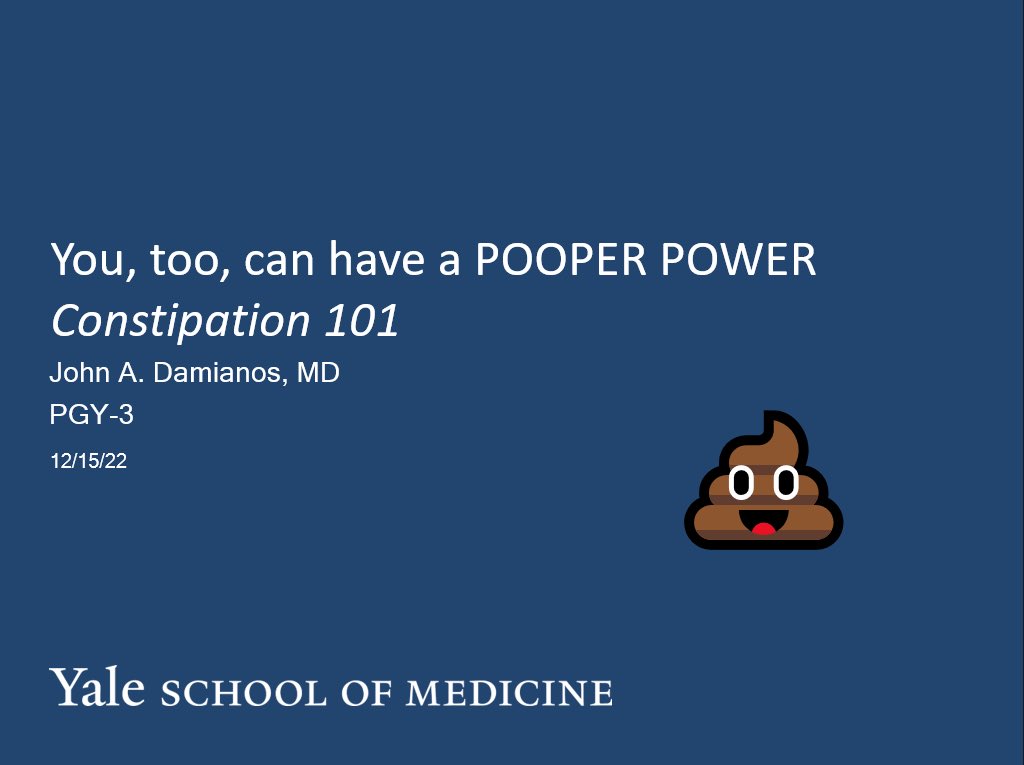🎯 Goals in management of inflammatory bowel disease with @MLongMD
#MedTwitter #GITwitter #IBD #ACG2022
#MedTwitter #GITwitter #IBD #ACG2022

Only a minority of Crohn disease patients have an indolent course. The majority have PROGRESSIVE disease. We need to identify these patients and treat them in the window of opportunity. 



How to achieve better outcomes in #IBD 

⏰ Timing matters
-earlier TNF use in CD protects against steroids and surgery
-early intervention ⬇️ disease-related complications

-earlier TNF use in CD protects against steroids and surgery
-early intervention ⬇️ disease-related complications


Why is active monitoring important? Even "silent" #IBD portends complications 
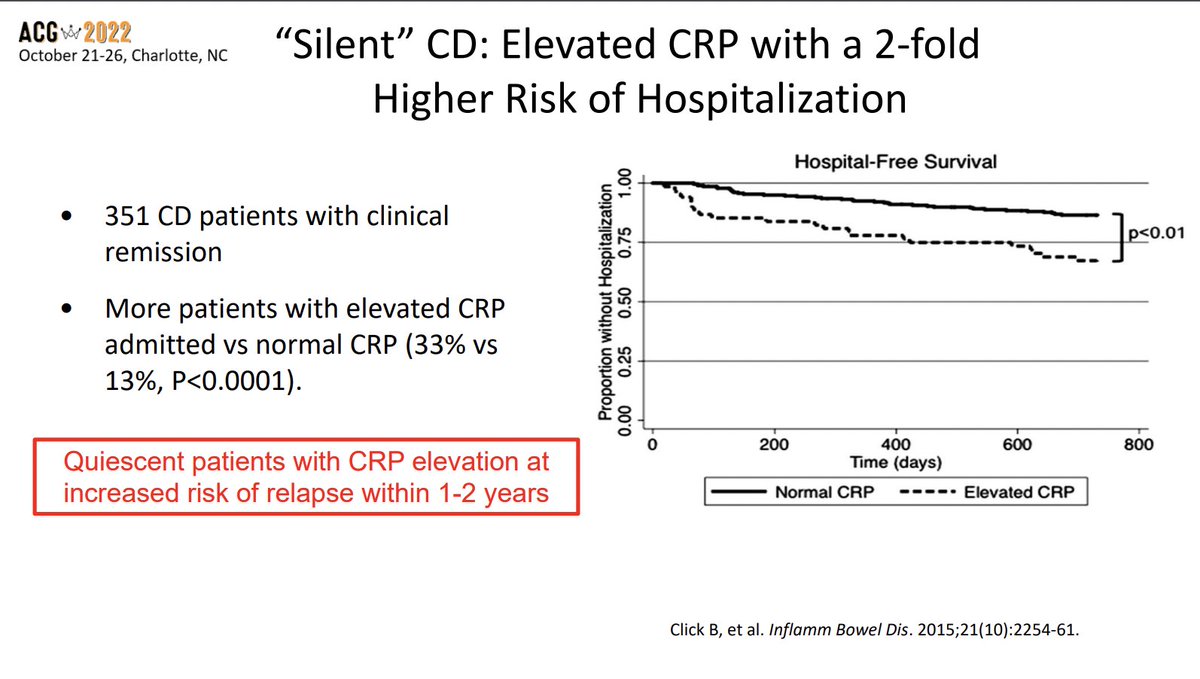
🔑Not all symptoms in #IBD are due to inflammation 
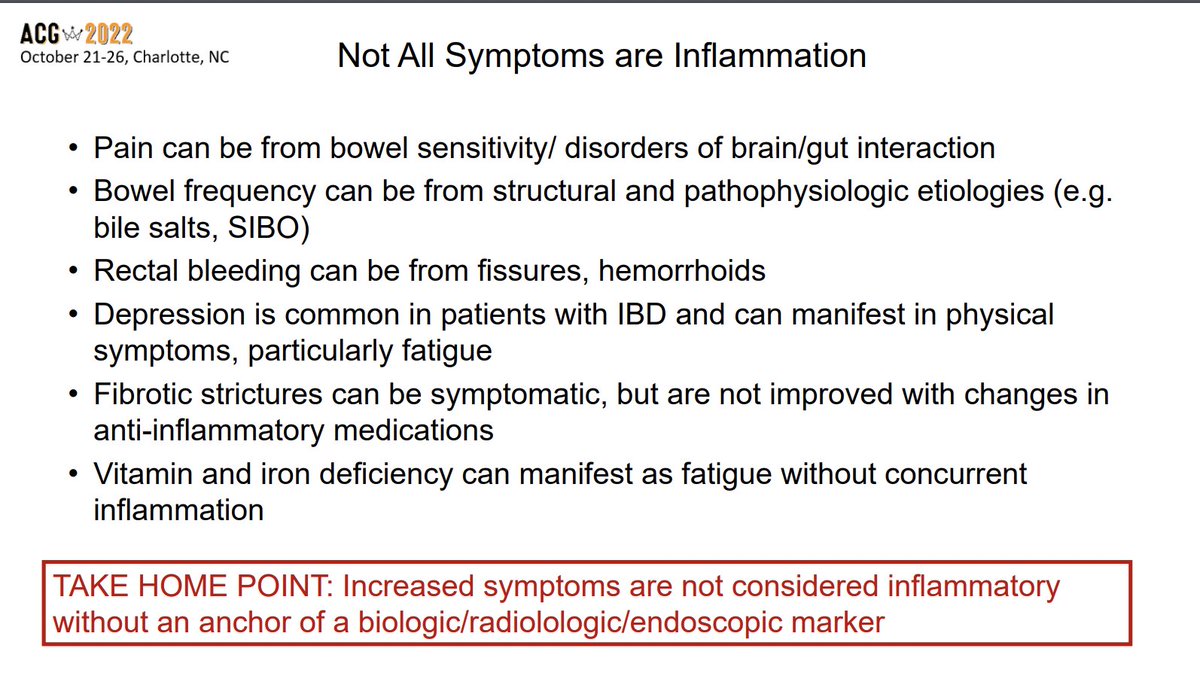
Relevant shameless plug for our review on #IBS symptoms in #IBD!
https://twitter.com/john_damianosMD/status/1527312031270899712?s=20&t=TldmdbgIlzWUysy1g8Z_Aw
• • •
Missing some Tweet in this thread? You can try to
force a refresh

